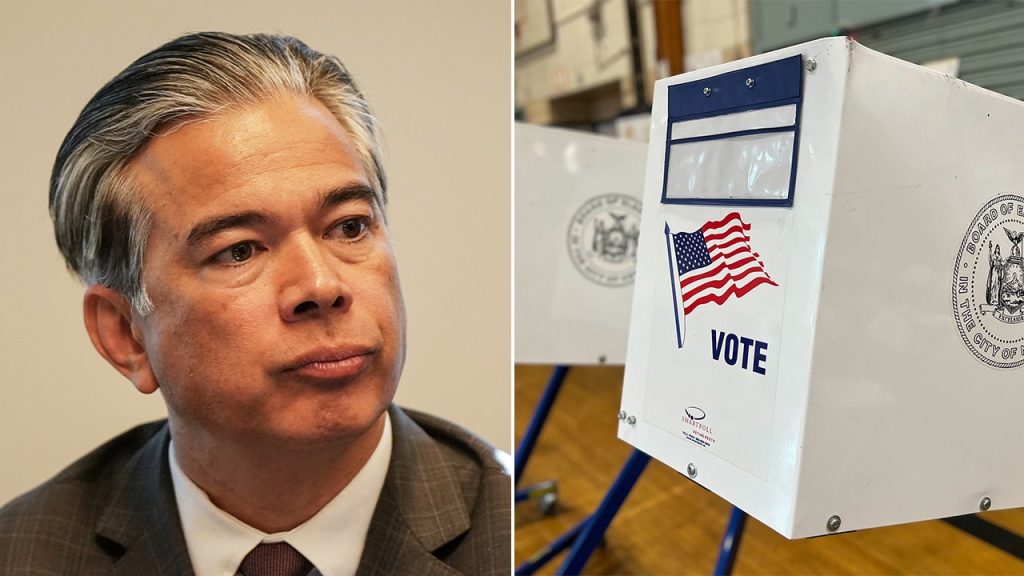More than a dozen Democrat attorneys general are getting involved in a legal dispute in Georgia over its congressional map, claiming it discriminates against minority voters. The challenge brought by the ACLU, WilmerHale, the Sixth District of the African Methodist Episcopal Church, and individual Georgia voters alleges that the new congressional map enacted by Georgia lawmakers after the 2020 census dilutes the power of Black voters by not adding new Black-majority districts to reflect the growth in the Black population in the state’s metro areas. California Attorney General Rob Bonta and 18 of his colleagues filed an amicus brief, arguing that Georgia’s maps are “diluting minority voting strength.”
Election watchdog groups are critical of blue states intervening in Georgia’s legal battle to keep a GOP-drawn map, calling it “transparently political.” Honest Elections Project Vice President Chad Ennis accused the left of labeling every map not tilted towards Democrats as racist. In December, a federal judge appointed by Obama ruled that the Georgia assembly had complied with an earlier order to include an additional Black district, but the ACLU and others argued that the state was still violating the Voting Rights Act by simultaneously dismantling a nearby district of mostly minority voters. The ACLU contends that the map still violates the VRA’s Section 2, which prohibits any voting qualification or practice that denies any citizen the right to vote based on race or color.
Bonta’s office stated that the purpose of the blue state amicus brief was to emphasize the importance of civic engagement for all voters and ensuring that every citizen has the right to vote, regardless of race. The Honest Elections Project criticized the Democrat state prosecutors for ignoring minority districts that do not benefit the Left politically, citing a recent court battle in Michigan where the state House and Senate maps were invalidated as racial gerrymanders. A federal panel ruled that Michigan’s Independent Citizens Redistricting Commission had illegally drawn lines that minimized Black voting age population in Detroit-area districts, denying Black voters the ability to select minority candidates in primaries.
The involvement of state attorneys general in election litigation related to a sister state like Georgia is considered extremely rare. Ken Cuccinelli, former Virginia attorney general and head of the Election Transparency Initiative, stated that there is no doubt the Democrat AGs’ amicus brief is political. He criticized the lack of attention from the institutional left on cases where maps benefited them, suggesting that the Democrat AGs’ intervention in Georgia’s case is not intended to help minority voters. The ongoing legal dispute in Georgia highlights the contentious nature of redistricting discussions and the diverse perspectives that various stakeholders bring to the table.
Overall, the involvement of Democrat attorneys general in Georgia’s congressional map dispute underscores the political and legal complexities of redistricting battles. The accusations of diluting minority voting strength, violations of the Voting Rights Act, and allegations of racial gerrymandering demonstrate the high stakes and competing interests in the redistricting process. The differing interpretations of the law, the impact on minority voters, and the role of state prosecutors in shaping electoral outcomes all contribute to a complex and multifaceted debate surrounding electoral fairness and representation. As the legal battle in Georgia continues to unfold, it remains to be seen how the courts will navigate these contentious issues and ultimately determine the fate of the state’s congressional map.


